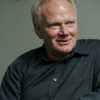Ulrich Beck

Ulrich Beck
Ulrich Beckwas a well known German sociologist, and one of the most cited social scientists in the world during his lifetime. His work focused on questions of uncontrollability, ignorance and uncertainty in the modern age, and he coined the terms "risk society" and "second modernity" or "reflexive modernization" . He also tried to overturn national perspectives that predominated in sociological investigations with a cosmopolitanism that acknowledges the interconnectedness of the modern world. He was a professor at the University of...
NationalityGerman
ProfessionSociologist
Date of Birth15 May 1944
CountryGermany
When they come to Europe, they are confronted by still closed borders. Thus, the concept of open borders is a very selective concept, one that is not taken seriously at all in the experience of non-Europeans.
We do not yet have the solutions to these questions, but the awareness that we live in an endangered world is present in more and more life situations.
This experience actually means the very opposite: the largest military power was unable to stop such a sensitive attack and will be unable to rule out such a possibility in the future. Precisely this is the background to the United States' military interventions.
That was the first major social sciences conference at which social scientists from all cultures wanted to reach a consensus on whether we can continue to pursue a national course in the social sciences or whether we need a cosmopolitan path that also connects us in a new way.
You could say that we are living in an internally globalized country.
I forced myself to think what is the new concept and it became clear to me that it was risk, not only in technology and ecology, but in life and employment, too.
In their daily lives, people can see they are affected by questions that do not only relate to one location, but affect civilization as a whole.
Strong ties with a particular place, the fact that something flourishes there and has a special smell or taste - all this is being lost.
Environmental problems, unemployment - all these issues cannot be resolved alone. They require at least European, possibly even broader, solutions.
For example, European countries have still not yet really opened up their borders to products from these countries, something that is fundamental.
Western countries in particular can today no longer be separated from Muslim societies, because they have them within themselves. They are themselves internally globalized.
In the first instance, therefore, global terrorism created a kind of global community sharing a common fate, something we had previously considered impossible.
And it also became clear that these conditions of inequality and historical injustice have given rise to a feeling of hate in the world - a deeply felt hate that cannot easily be overcome with a few good words.
Relinquishing apparent national sovereignty does not have to entail a loss of national sovereignty, but can actually be a benefit.